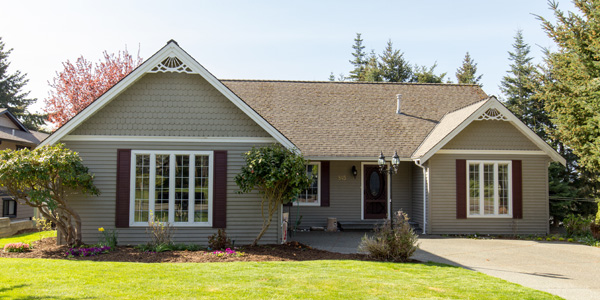Reverse Mortgage Specialist | Helping Homeowners 55+ Unlock Retirement Income | Trusted Advisor to Financial & Legal Pros | Speaker & Educator
In Marin County’s high-priced real estate market, many homeowners over age 60 are sitting on a goldmine of home equity—but feel stuck when it comes to Making a Move. As their Trusted Real Estate Advisor, you’re in a unique position to guide them through the transition from a larger family home to a new one-level, perhaps walkable, and more manageable home.
The Challenge: Retiring clients don’t want to take on a new mortgage payment, and they certainly do not want to take money from their taxable retirement accounts.
The Industry Secret: There is little know tool that can help your mature buyers get the home they really want and improve their financial picture for decades to come. Enter the downsizing tool extraordinaire, the often overlooked Home Equity Conversion Mortgage (HECM) for Purchase, otherwise known as the
FHA’s Lifestyle Loan.
What is the Lifestyle Loan
The Lifestyle Loan (LL) is a type of FHA-insured payment-deferred mortgage that allows homeowners age 62+ to purchase a new home using a combination of a down payment (from the proceeds of the home sell for them) along with a non-recourse retirement-focused loan, which requires no monthly mortgage payments* (as long as they live in the home and meet basic requirements). The Lifestyle Loan can be a game-changer for clients who want to downsize, stay in California, and retain financial flexibility and liquidity.
The Marin Market Reality, “If I sell, where will I go?”
In Marin, where the median home price far exceeds $1 million, many older homeowners have considerable untapped equity—and they love the idea of moving to something with a smaller yard, newer amenities, and even located closer to their favorite shops and cafe’s for a more mobility-focused lifestyle.
Yet, once they sell, pay off a large remaining mortgage balance, and possibly incur federal and state capital gain taxes; they may not have quite enough cash to get the next house that inspires them to Make a Move.
Once Boomers and Seniors learn about this federally-insured and non-recourse Lifestyle Loan, with Minimal Income and Credit Requirements, they can see a path toward getting their dream home without breaking the bank.
If you are talking to potential sellers and hearing these concerns, you should think of the Lifestyle Loan as the answer:
– Where will I go? Will I be able to stay local, in Marin, or at least nearby?
– Will I be able to afford a new home without tapping my retirement savings?
– What if I want to preserve cash flow and still live comfortably?
– Can I age in place and enjoy the proceeds from selling my current home?
As a trusted Real Estate Advisor, assembling your team to help address these fears and offer creative solutions that align with your clients’ lifestyle goals is crucial to increasing your sales.
Here is a Real-Life Scenario
Imagine this: You help your 70-year-old clients, Jim and Velma, sell their long-time Mill Valley home for $2.3M.
– They pay off their mortgage and HELOC of $1.1M.
– Sale fees and capital gain tax = 250k.
– Total cash in hand after sale is $850,000.
They want to stay as close to family and friends as possible, and they need a garage for Jim’s Big Band to practice every weekend.
They set out on their home shopping adventure and find just the right one-level home, recently remodeled and walkable to the Farmer’s Market, YAY!!!
Oops, the price tag is $1.2M and they do not want a mortgage payment to ruin their retirement cash flow. Their financial advisors recommends NOT taking money from their investment accounts to supplement their cash. NOW WHAT?
Enter the Lifestyle Loan: Jim and Velma can put down ~$800K (typically 40–60% of the purchase price, depending on age and rates), and use the FHA Lifestyle Loan to finance the rest—no monthly mortgage payments required.
Jim and Velma have money left over to add some solar and buy a new Prius. Life is good!
Why This Matters for You
Helping clients access this kind of financing solution:
– Creates new purchase opportunities in a competitive market
– Builds trust and long-term referrals
– Opens the door to double-sided transactions (sell + buy)
– Sets you apart as an innovative and compassionate advisor
Partner with a proven Lifestyle Loan Specialist
As a Marin-based Home Equity Retirement Specialist with 20+ years of experience, I collaborate with Real Estate Professionals to educate and support buyers throughout the Downsizing process. I’m here to:
– Help pre-qualify your clients for H4P financing. We fully underwrite the borrowers before they start making offers. This enables us to close in 30 days.
– Join you in client meetings to answer questions
– Host co-branded educational workshops or webinars
Let’s work together to create more opportunities for our clients to live securely, comfortably, and with confidence. Reach out to find a time to talk.
Mary Jo Lafaye, Marin County Home Equity Retirement Specialist NMLS #246222
www.maryjolafaye.com | [email protected] | (415) 259-4979
*Reverse mortgage borrower must occupy home as primary residence and remain current on property taxes, homeowner’s insurance, the costs of home maintenance, and any HOA fees.
Mary Jo Lafaye, NMLS ID 246222. Mutual of Omaha Mortgage, Inc. dba Mutual of Omaha Reverse Mortgage, NMLS ID 1025894. 3131 Camino Del Rio N 1100, San Diego, CA 92108. Licensed by the Department of Financial Protection & Innovation under the California Residential Mortgage Lending Act, License 4131356. These materials are not from HUD or FHA and the document was not approved by HUD, FHA or any Government Agency. Subject to credit approval. For licensing information, go to: www.nmlsconsumeraccess.org
Equal Housing Lender









